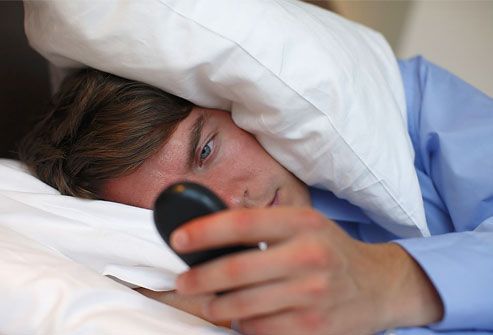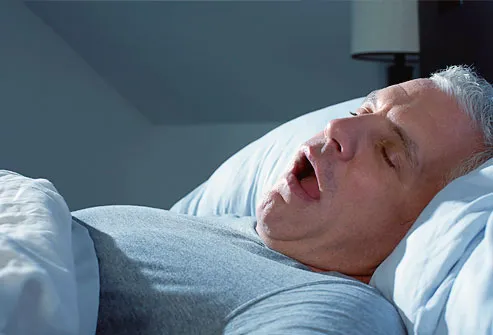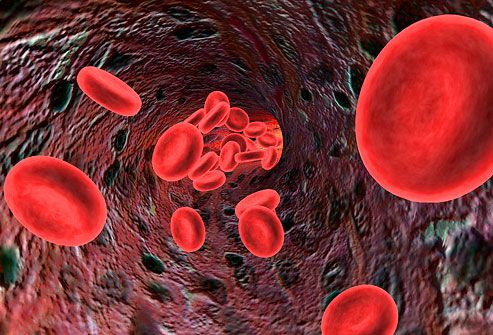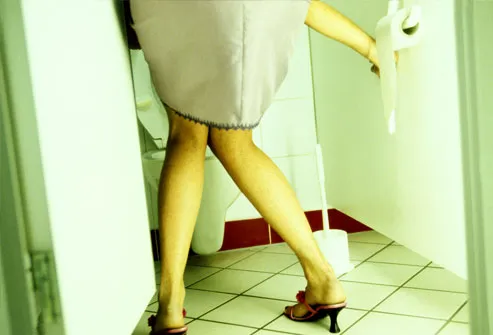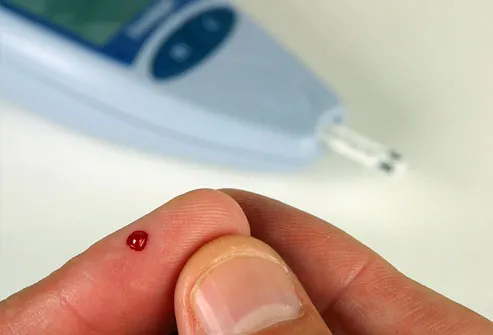Fatigue Cause No. 2: Sleep Apnea
Some people think they're sleeping enough, but sleep apnea gets in the way. It briefly stops your breathing throughout the night. Each interruption wakes you for a moment, but you may not be aware of it. The result: you’re sleep-deprived despite spending eight hours in bed.
Fix: Lose weight if you're overweight, quit smoking, and sleep with a CPAP device to help keep airway passages open at night.
Fatigue Cause No. 3: Not Enough Fuel
Eating too little causes fatigue, but eating the wrong foods can also be a problem. Eating a balanced diet helps keep your blood sugar in a normal range and prevents that sluggish feeling when your blood sugar drops.
Fix: Always eat breakfast and try to include protein and complex carbs in every meal. For example, eat eggs with whole-grain toast. Also eat meals and snacks throughout the day for sustained energy.
Fatigue Cause No. 4: Anemia
Anemia is one of the leading causes of fatigue in women. Menstrual blood loss can cause an iron deficiency, putting women at risk. Red blood cells (shown here) are needed because they carry oxygen to your tissues and organs.
Fix: For anemia caused by an iron deficiency, taking iron supplements and eating iron-rich foods, such as lean meat, liver, shellfish, beans, and enriched cereal, can help
Fatigue Cause No. 5: Depression
You may think of depression as an emotional disorder, but it contributes to many physical symptoms as well. Fatigue, headaches, and loss of appetite are among the most common symptoms. If you feel tired and "down" for more than a couple of weeks, see your doctor.
Fix: Depression responds well to psychotherapy and/or medication.
Fatigue Cause No. 6: Hypothyroidism
The thyroid is a small gland at the base of your neck. It controls your metabolism, the speed at which your body converts fuel into energy. When the gland is underactive and the metabolism functions too slowly, you may feel sluggish and put on weight.
Fix: If a blood test confirms your thyroid hormones are low, synthetic hormones can bring you up to speed.
Fatigue Cause No. 7: Caffeine Overload
Caffeine can improve alertness and concentration in moderate doses. But too much can increase heart rate, blood pressure, and jitteriness. And research indicates too much actually causes fatigue in some people.
Fix: Gradually cut back on coffee, tea, chocolate, soft drinks, and any medications that contain caffeine. Stopping suddenly can cause caffeine withdrawal and more fatigue.
Fatigue Cause No. 8: Hidden UTI
If you've ever had a urinary tract infection (UTI), you're probably familiar with the burning pain and sense of urgency. But the infection does not always announce itself with such obvious symptoms. In some cases, fatigue may be the only sign. A urine test can quickly confirm a UTI.
Fix: Antibiotics are the cure for UTIs, and the fatigue will usually vanish within a week
Fatigue Cause No. 9: Diabetes
In people with diabetes, abnormally high levels of sugar remain in the bloodstream instead of entering the body's cells, where it would be converted into energy. The result is a body that runs out of steam despite having enough to eat. If you have persistent, unexplained fatigue, ask your doctor about being tested for diabetes.
Fix: Treatments for diabetes may include lifestyle changes such as diet and exercise, insulin therapy, and medications to help the body process sugar.
Fatigue Cause No. 10: Dehydration
Your fatigue can be a sign of dehydration. Whether you're working out or working a desk job, your body needs water to work well and keep cool. If you're thirsty, you're already dehydrated.
Fix: Drink water throughout the day so your urine is light colored. Have at least two cups of water an hour or more before a planned physical activity. Then, sip throughout your workout and afterwards drink another two cups.

